
Zapruder film.'Ενα από τα 486 "frames" που τράβηξε ο Abraham Zapruder με τη μικρή του home-movie camera μάρκας Bell & Howell Zoomatic καθώς περνούσε από μπροστά του στο Dallas η προεδρική πομπή. Είναι η στιγμή που η Jackie Kennedy στρέφεται προς τους σωματοφύλακες για να ζητήσει βοήθεια, μία σκηνή που, όπως δήλωσε αργότερα, διαγράφτηκε τελείως από τη μνήμη της. Βλ. fansinaflashbulb.

Ο Abraham Zapruder. Οπαδός των Δημοκρατικών και θαυμαστής του John Kennedy, ο Abraham Zapruder ήταν κατασκευαστής γυναικείων ρούχων. Η βοηθός του ήταν αυτή που τον έπεισε εκείνη τη μέρα να πάρει την κάμερα μαζί του. Τον συνόδευσε, και όση ώρα ο Abraham Zapruder κινηματογραφούσε ανεβασμένος πάνω σε ένα πεζούλι, τον επέβλεπε μην πέσει. Βλ. yoashtv.

Δύο ώρες μετά τη δολοφονία, ο Abraham Zapruder κατέθετε τη μαρτυρία του στο τηλεοπτικό κανάλι WFAA, ενώ η ταινία του στελνόταν στα εργαστήρια της Eastman Kodak για εμφάνιση. Στη φωτογραφία, η κάμερα του Abraham Zapruder (ανήκει σήμερα στη συλλογή των US National Archives). Βλ. kameramuseum, David Von Pein, The Huffington Post, Wikipedia.

Σχεδιάγραμμα με τη θέση της προεδρικής λιμουζίνας και των διαφόρων αυτοπτών μαρτύρων. Βλ. NSPC.

Πανοραμική άποψη της πορείας του προεδρικού αυτοκινήτου στην Dealey Plaza μέσα από την κάμερα του Abraham Zapruder (βλ. metafilter) και το σημείο της δολοφονίας σε πρόσφατη φωτογραφία του Nathan Stringer (βλ. Wikimedia Commons).

Φωτογραφία του Phillip LaFrance Willis, ελάχιστα δευτερόλεπτα πριν τους πυροβολισμούς. Διακρίνεται το σημείο όπου είχε ανέβει ο Abraham Zapruder για να κινηματογραφήσει. Βλ. Men of Courage + JFK Assassination Evidence, Discoveries & Suspects by Don Roberdeau, clccharter.org, makeitallupsotruly και theshotsindealeyplaza.

Πολαρόιντ που τράβηξε η Mary Ann Moorman τη στιγμή που πυροβολήθηκε ο John Kennedy (αντιστοιχεί στα καρέ 315 και 316 του Abraham Zapruder). Βλ. Men of Courage + JFK Assassination Evidence, Discoveries & Suspects by Don Roberdeau.

Φωτογραφία του ιεραπόστολου πατέρα Robert Earl Croft (αντιστοιχεί στο καρέ 161 του "Zapruder film"). Βλ. Men of Courage + JFK Assassination Evidence, Discoveries & Suspects by Don Roberdeau.

Zapruder film.

Zapruder film. Βλ. fansinaflashbulb.

Zapruder film, το καρέ 313. Τη νύχτα της δολοφονίας, ο Abraham Zapruder ονειρεύτηκε πως μία διαφήμιση σε ένα περίπτερο της Times Square έγραφε "Δες πως το κεφάλι του Προέδρου εκρήγνυται !" Απόφασισε τότε, ορμώμενος από τον εφιάλτη του, να ζητήσει από το περιοδικό Life με το οποίο διαπραγματευόταν την εκχώρηση των δικαιωμάτων του φιλμ να μην δημοσιευτεί το καρέ 313 που δείχνει τη στιγμή του πυροβολισμού στο κεφάλι. Βλ. fansinaflashbulb.

Zapruder film. Βλ. fansinaflashbulb.


Zapruder film. Βλ. fansinaflashbulb.

Zapruder film.

Βλ. 4chandata.org και mylistofthangs.

Το δημοσίευμα στο περιοδικό Life. Τα δικαιώματα της ταινίας απέφεραν μέχρι σήμερα στον Abraham Zapruder και τους κληρονόμους του πάνω από ένα εκατομμύριο δολάρια, ένα ακόμη ρεκόρ για εραστιτεχνική ταινία. Βλ. americanantiquities και fansinaflashbulb.
"Oh, no!, Oh, no!," Mrs. Kennedy cries (top row of pictures) as she sees the blood flowing from the President's head. But the convoy keeps going, past the onlookers and photographers who stand frozen or fall to the ground as they hear the shots.
As the President lies dying, Jackie scrambles out of her seat and crawls onto the truck of the car in a pathetic search for help. As she crouches on hands and knees, the President's head presses against her, staining her skirt and stockings with blood. A Secret Service man [Agent Clinton Hill] leaps on the bumper to protect the First Lady and get her back into the car" (Life).

Η οικογένεια Newman πεσμένη στο γρασίδι μετά τους πυροβολισμούς. Ο William και η Gayle Newman ήταν οι πλησιέστεροι αυτόπτες μάρτυρες της δολοφονίας του John Kennedy. Βλ. David Von Pein, JFK Archives.

Βλ. David Von Pein, JFK Archives.

Βλ. David Von Pein, JFK Archives.

Βλ. David Von Pein, JFK Archives.

Υποψίες για αλλοίωση της ταινίας του Abraham Zapruder στο σάιτ του David Healy Altering the Zapruder Film.

'Ενα ακόμη δήθεν "μυστήριο" στην υπόθεση της δολοφονίας του John Kennedy : ποιος είναι αυτός ο μοναχικός "Indiana mellophone player", με το αστέρι στο στήθος, που εμφανίζεται σε ένα καρέ του φιλμ του Abraham Zapruder που υποτίθεται πως είχε χαθεί, στην τελετή παραίτησης του Nixon, αλλά και δίπλα στον Πρόεδρο Ronald Reagan λίγα λεπτά πριν την απόπειρα δολοφονίας εναντίον του έξω από το Hilton στη Washington ; Βλ. Middle Horn Leader.

Βλ. americanheritage.

"Dallas, november 22, 1963. After Abraham Zapruder had finished filming, both Zapruder and Mrs. Marilyn Sitzman stepped down from the pedestal where they had been filming. They were still flabbergasted by what they had just seen. At that very moment, Associated Press photographer Ike Altgens snapped his camera. He didn't want to frame Zapruder, nor Charles and Beatrice Hester (lying on the floor). He wanted to catch the presidential limousine as it passed but he was so affected by what was going on that, in spite of being a professional, he coudn't react on time. By the time he shot the trigger of the camera the limousine was out of frame and what he captured is what you can see in the picture above. Not exactly what he wanted but not less important. At that very moment Abraham Zapruder carried with him one of the most important records in American History. And looking at this picture I always ask myself two silly questions: why had Beatrice Hester such an elegant air and where was she looking at?" (Peter Vidani, Pictures a like).
Good Night America, η εκπομπή όπου προβλήθηκε για πρώτη φορά η ταινία του Abraham Zapruder.
H ταινία του Abraham Zapruder σε αποκατεστημένη κόπια με υψηλή ευκρίνεια.
The Other Shooter: The Saddest and Most Expensive 26 Seconds of Amateur Film Ever Made.
(από τον Alex Pasternack, Editor, Motherboard.tv)
Because the president's limousine passed almost exactly in front of Dallas clothing manufacturer Abraham Zapruder on Nov. 22, 1963, just as he was playing with his new film camera, and precisely at the moment that Lee Harvey Oswald fired his rifle from a nearby books depository, his silent, 26.6-second home movie has become the focal point of America's collective memory on that weird day. For many of us, especially those who weren't alive when it happened, we're all watching that event through Zapruder's lens.
Other footage from the scene turns up here and there and becomes fodder for documentaries (like this new one disproving the "second shooter" theory). But Zapruder's film is still the canonical text of John F. Kennedy's assassination, the most complete and most chilling visual record. In many ways, it prefigured all sorts of American pastimes, from widespread paranoia about government to a loss of faith in photographic truth and the news media, from the acceptance of graphic violence to newer concerns about copyright. Don Delillo once said that the little film "could probably fuel college courses in a dozen subjects from history to physics." Without the 486 frames of Kodachrome II 8mm safety film, our understanding of JFK's assassination would likely be an even greater carnival of conspiracy theories than it already is. Well, maybe.
In the numb, confused hour that started with the gunshots, Zapruder — a Russian-Jew whose parents had immigrated to Brooklyn in 1906 and who had moved his family to Dallas, where he ran his own sportswear company — would connect with Forrest Sorrels, an agent of the Secret Service's Dallas office. After securing a promise from Sorrels that the footage would only be used for an official investigation, the two of them began a feverish rush to develop the film.
Together, they drove to the television station WFAA for help, but their equipment wasn't sufficient. In the late afternoon, the film was taken to Eastman Kodak's Dallas processing plant where it was immediately developed, and, at 6:30 p.m., driven to the Jamieson Film Company, where three additional copies were exposed. By 8:00 p.m. Zapruder had the original and a copy, and handed the other two copies to Sorrels, who sent them to Washington.
That left him with one extra copy of history's most famous home movie. By evening, the rush to acquire the footage was on, and it was as feverish as it might be today. At its center were titans of both old and new media: the august editors of Life and the bulldog producers at CBS News. At that time, television news hadn't yet become a serious focal point for most Americans, though that was about to change.
The accidental film almost didn't happen at all. Zapruder admired the president, but he hadn't thought about taking his new camera along to watch the motorcade until his assistant, Lillian Rogers, insisted. An 8mm Bell & Howell Zoomatic Director Series Model 414 PD, the camera was top of the line when Zapruder purchased it the previous year. While he stood atop a concrete pedestal along Elm Street, he steadied himself with the help of Marilyn Sitzman, his receptionist, who held him from behind while he began filming. The president's limousine turned onto Elm Street in front of the Book Depository, and for the next 26.6 seconds the camera captured 486 frames that would become a kind of national monument.
Dan Rather, a very young Dan Rather, whose career was about to be minted, was CBS's Dallas bureau chief at the time. He called New York, asked for Don Hewitt, and told him that "a guy named Zapruder was supposed to have film of the assassination and was going to put it up for sale." Exactly how interested was Walter Cronkite's evening news program? Hewitt, the show's executive producer — and the long-time producer of 60 Minutes — insisted it was very interested, and quickly decided the best approach would require a bit of, well, courage.
"In my desire to get a hold of what was probably the most dramatic piece of news footage ever shot," Hewett wrote, "I told Rather to go to Zapruder's house, sock him in the jaw, take his film to our affiliate in Dallas, copy it onto videotape, and let the CBS lawyers decide whether it could be sold or whether it was in the public domain. And then take the film back to Zapruder's house and give it back to him. That way, the only thing they could get him for was assault because he would have returned Zapruder's property. Rather said, 'Great idea. I'll do it.'
But then something dawned on Hewitt. "I hadn't hung up the phone maybe ten seconds when it hit me: What in the hell did you just do? Are you out of your mind? So I called Rather back. Luckily, he was still there, and I said to him, 'For Christ's sake, don't do what I just told you to. I think this day has gotten to me and thank God I caught you before you left.' Knowing Dan to be as competitive as I am, I had the feeling that he wished he'd left before the second phone call."
Possibly. The next morning Zapruder passed on CBS News's lower bid and sold the print rights of the film to Life magazine for a total of $150,000, equivalent to over $1 million in today's money. Even then, this sum wasn't unheard of: just a few years earlier, the magazine had paid $500,000 for the exclusive story of the Gemini astronauts and their wives. The next day, TV news would earn another big coup: while being transferred from police headquarters to the county jail, suspected shooter Lee Harvey Oswald would be shot by nightclub owner Jack Ruby, in front of live television cameras. The Zapruder film, meanwhile, would almost never be seen on television.
Still, a few days later, Rather, who claims to be the first journalist to have seen the film, described it for a national audience on the evening news.
Rather's was a sober, chilling but dignified description of the events, from the gentle roll of the limousine to the second shot that hit Texas Governor John Connally to the desperate crawl of the First Lady, "on all fours," across the car's trunk, toward the nearest bodyguard, after the final fatal head shot. But it was, in forensic terms, grossly inaccurate. Kennedy's head did not thrash "violently forward," but backward. When this discrepancy emerged later, a thousand conspiracy theories—involving the CIA, the Russian mob, the KGB, Malcolm, Martin, RFK, and various shooters—were born.
But even without the film itself and only Rather's flawed description, Zapruder's footage had already begun to affix itself to the national brain.
The film's ambiguous impact was felt first and foremost inside the Zapruder home. The night after the assassination, he claimed to have had a nightmare in which he saw a booth in Times Square declaring, "See the president's head explode!" After his nightmare, Zapruder decided that one frame would never appear in print. Fearing the public's reaction to the gruesome fatal shot that killed JFK, and perhaps some karmic retribution, Zapruder insisted that frame 313 be withheld from publication. He also chose to give the first $25,000 of his Life payment to the widow of Dallas policeman J.D. Tippit, who had been killed confronting Lee Harvey Oswald after the assassination.
The following week, Life would publish 30 frames of the Zapruder film in black and white. Frames were also published in color in the December 6, 1963 special "John F. Kennedy Memorial Edition," and in three other issues over the next few years" (...) Η συνέχεια του (εκτενέστατου) άρθρου του Alex Pasternack στο σάιτ του Motherboard.tv/Vice.





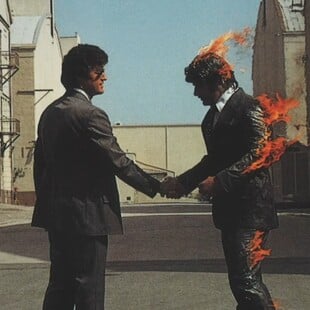




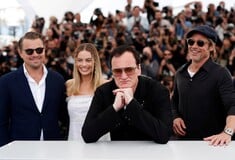
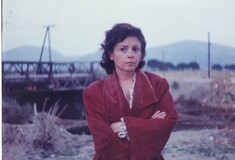




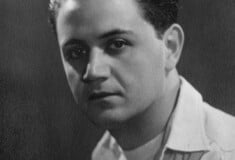









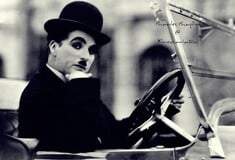
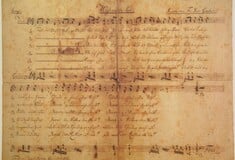
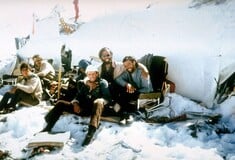

σχόλια